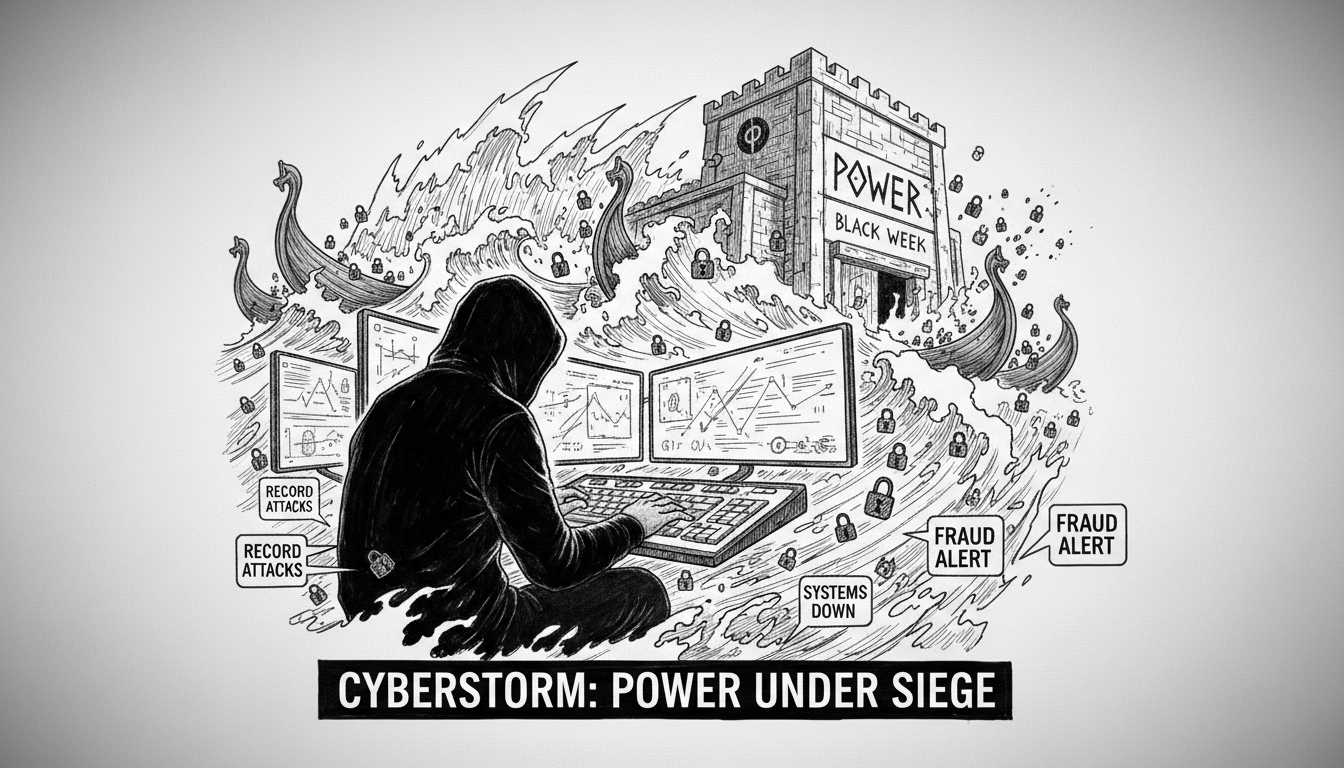Norwegian electronics retailer Power faces unprecedented cyber attacks just hours before launching its Black Week sales. The company experiences the highest number of digital assaults in its history during this critical shopping period.
Cyber security coordinator Ludvig Dvergastein confirms the alarming trend. Attacks have become both more frequent and sophisticated. We see a clear pattern every year before Black Week, but this time the volume has exploded completely, Dvergastein states.
The most massive attack involved 24 million server requests within minutes. This equals thousands of customers storming physical stores simultaneously. Power confirms these coordinated attacks originate from multiple countries worldwide. Their clear purpose is disrupting commerce during peak shopping hours by overloading websites and slowing customer access.
October saw 25 separate cyber incidents targeting the retailer. November brought multiple daily attacks. Recent days show even greater pressure with volumes exceeding all previous records. We love Black Week, and unfortunately hackers do too. But we stay several steps ahead this year, Dvergastein asserts.
Customer data and personal information remain secure despite the onslaught. Power has strengthened systems, doubled server capacity, and deployed dedicated emergency teams working around the clock. These measures aim to protect both company operations and consumer trust during Norway's busiest shopping period.
Johannes Vallesverd, anti-fraud expert at Norway's National Communications Authority, highlights broader implications. Service denial attacks and fraud exploitation affect numerous businesses. On a general basis, companies must ensure good security routines and solutions to reduce incident probability and consequences, he writes in an official communication.
Scammers adapt their methods to current contexts, creating customized fraud attempts around tax refunds, parking, package collection, and Black Week sales. Vallesverd notes no official statistics exist for total service denial attacks or cross-channel fraud attempts. However, various digital crimes hit businesses and individuals through multiple methods and channels.
Industry and government cooperation becomes crucial for identifying vulnerabilities and implementing relevant measures. The expert emphasizes the massive scale affecting ordinary citizens too. Nine out of ten Norwegians over 18 have experienced digital fraud attempts, according to a Respons Analysis survey commissioned by the communications authority.
Fraudsters often exploit trust, stress, and curiosity to trick victims. Digital fraud represents a serious societal problem that funds criminal networks, impacts individuals, and undermines public trust in technology and each other, Vallesverd concludes.
This situation reflects a growing global challenge where cyber criminals increasingly target retail sectors during high-revenue periods. Norwegian businesses face particular pressure as Black Week represents one of the country's most important shopping events, similar to Black Friday in other markets. The coordinated international nature of these attacks demonstrates how digital crime transcends borders, requiring multinational security cooperation and consumer awareness campaigns.

